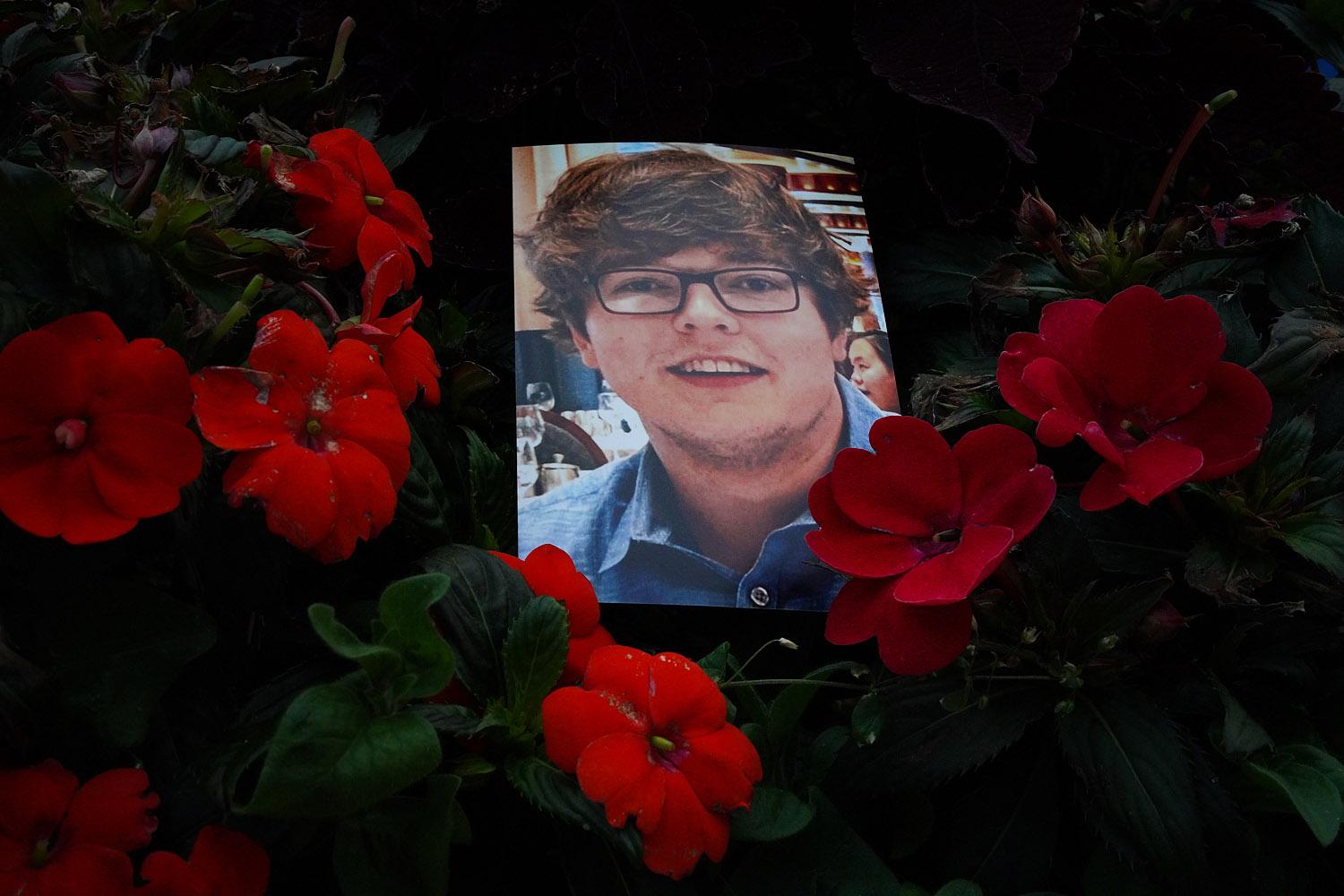There's a pretty good chance that a local ballot in Colorado this year has a question about banning medical marijuana dispensaries on it. More than 40 cities, towns and counties are asking voters to forbid or otherwise regulate marijuana-related businesses. Colorado Public Radio Health Reporter Eric Whitney surveys the election landscape.
If you want a visual representation of all the medical marijuana votes in Colorado this year, try Brian Vicente's office. Vicente runs the pro-legalization non-profit Sensible Colorado, and has a map of the state up on one wall. It's stuck with different colored pins. Lots of pins.
Vicente: It's a patchwork quilt of color, and a patchwork quilt of different regulations and bans across the state.
The colors represent different rules, or pending rules, for medical marijuana dispensaries. About 20 red pins show bans already implemented by elected officials. But most pins are yellow, meaning the citizens of a town or county are about to vote on whether to ban or allow dispensaries.
Why all the ballot issues all the sudden?
That's thanks to state lawmakers. Republican Tom Massey co-authored the dispensary bill that passed last spring. He says it probably wouldn't have passed if local communities weren't given the right to vote up or down on having dispensaries.
Massey: I kinda doubt it quite honestly, just bc there was a strong conservative element that said we don't want to see these in any form or fashion, and they saw this as quite possibly an acceptable compromise.
Vicente says all kinds of communities are taking the opportunity to vote.
Vicente: they range from really large counties like Douglas and really large cities like Aurora, and then much smaller places, you have Granby and Trinidad and then some of the western slope counties as well. So it's pretty diverse.
It's a diverse group but the vast majority are considering pretty much one question: Should dispensaries be allowed in a given city, town or county?
A handful, including Pueblo, ask voters to OK dispensaries, or impose a sales tax on them.
Broomfield is the lone example of a vote to overturn a dispensary ban already enacted by city council.
Part of the reason for the ballot rush is a looming deadline. By July one of next year, towns and counties that haven't explicitly said no to dispensaries must allow them under state law.
Lippincott: I never thought something like that would happen.
Ken Lippincott is a retired schoolteacher in Fountain, 15 miles south of Colorado Springs. He never thought he'd see pot openly for sale in storefronts in Colorado, and he's campaigning to make that illegal here in Fountain.
Lippincott: I think it's a scam. I really do. And we want to communicate the idea that drug abuse is not favored in our town.
Lippincott, in a red baseball cap, oxygen tank slung over his shoulder, stands next to a stop sign across from Fountain's town hall during rush hour. A long line of cars backs up, and every driver has to see the sign he's carrying. It says, “say no to pot shops.”
Lippincott: The kind that we had posted at corners and roadways, but 137 of those signs were stolen. Now, we're small budget, so we thought we'd try a different strategy and take the message directly to the people.
Sensible Colorado’s Brian Vi cente says the fight against local dispensary bans is pretty low budget, too, despite a constituency with seemingly deep pockets.
Vicente: Well, dispensaries are pretty cash-strapped at this point, they've just paid considerable fees to the state for the privilege of operating. And many of these communities do not have pre-existing dispensaries, so there's not an inherent business interest there. 12-350
But pro- dispensary campaigner Michael Elliott says Colorado's medical marijuana industry is pulling together, at least a little bit. Dispensaries have largely funded a $10,000 radio ad buy here. And at a rally at a Colorado Springs bar, Elliot is asking them to help get out the vote.
Elliott: We need you to make your phone lines available to volunteers and patients. If you guys have an extra phone, fill it up with one of your patients making phone calls all day, please consider doing that.
None of the bans would make medical marijuana itself illegal in a city, town or county. They would just ban dispensaries and the pot gardens that supply them.
Patients will still be allowed to grow their own, or get it from a caregiver who grows for just a few patients.
Backers of the bans say that's preferable to storefront sales. Dispensaries say they should be allowed, because medical pot will be better regulated, and bring in local tax revenue, if they sell it with state and local licenses.
Whichever side gains the most traction this round,will likely be emboldened for another round of local votes this spring, in order to have policies in place before they’re subject to state rules in July.









